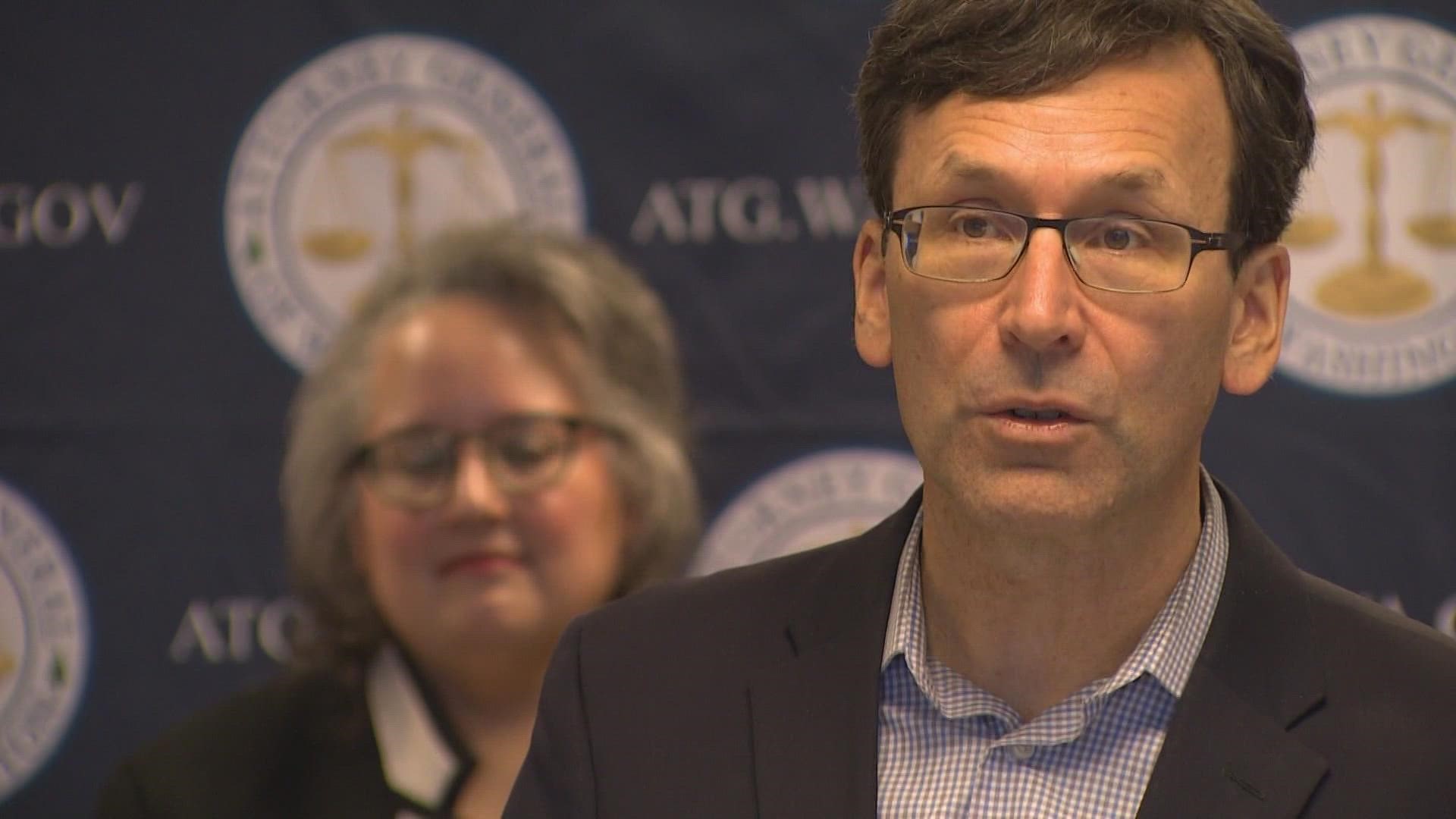SEATTLE — The Washington Attorney General said his office filed a lawsuit Wedneday against three large pharmacy chains, accusing the companies of skirting federal regulations, flooding the state with opioid drugs and fueling illegal drug rings.
Attorney General Bob Ferguson said the lawsuit against Albertson's, Kroger and Rite Aid was filed in King County Superior Court. The lawsuit includes chain pharmacies the companies acquired, including Safeway, QFC, Fred Meyer and Bartell Drugs.
The state of Washington is seeking $7,500 for every violation of the Consumer Protection Act and asked the court for injunctions to prevent the pharmacy companies from future action. Ferguson said there were "many thousands of violations," but the precise money amount will not be determined until a later date.
"During the opioid crisis over the last decade, these companies ignored federal regulations, put profits over safety and knowingly oversupplied opioids in our state," Ferguson said. "These chain pharmacies illegally, recklessly and negligently filled opioid orders without adequately investigating red flags.”
Ferguson claimed the companies had a "wealth of data" to dispense opioid medication in a safe manner, but failed to give the info to their own pharmacists. The large chains were accused of paying pharmacists on how fast they filled opioid prescriptions and hindering them from doing their jobs, Ferguson said at a press conference Wednesday morning.
Bartell Drugs paid an $800,000 fine in 2020 for allegations it filled prescriptions from medical providers whose licenses had been suspended or restricted at least 400 times.
Ferguson accused the pharmacy companies of fueling an illegal market of highly addictive and dangerous drugs in Washington state.
"Communities across Washington state are still dealing with damages caused by these companies," Ferguson said. "Our lawsuit demands their conduct be called out for what it is: Unfair and deceptive business practices that create a public nuisance across our state.”
According to Ferguson, 112 million daily doses of prescription opioids were given out in 2011 across the state. That's enough for a 16-day supply of opioids for every man, woman and child in Washington. Ferguson added that eight Washington counties had more opioid prescriptions than residents in 2015.
Ferguson said an average of four Washingtonians died every day from opioid overdoses in 2021. Fentanyl deaths doubled statewide from 2010 to 2019 and almost doubled from 2020 to 2021, according to statistics from Ferguson's office.
“These grim statistics are exactly why my team and I are continuing to push forward for holding this responsible and making sure they pay for the damage they caused," Ferguson said.
In addition to the new opioid lawsuit, Ferguson signed multi-state resolutions with five other companies, which the Attorney General’s Office estimates could total:
- CVS: $110.6 million to Washington state over 10 years
- Walgreens: $120.3 million to Washington state over 15 years
- Walmart: $62.6 million to Washington state and 97% of that paid in the first year
- Teva: $90.7 million to Washington state over the next 13 years
- Allergan: $50 million to Washington state over the next seven years.
The Attorney General's Office estimated Washington state will receive $434 million to combat the ongoing opioid epidemic, bringing its total to $1.1 billion in money recovered. All of the funds won in these lawsuits must be used in the state's efforts to fight the opioid crisis, Ferguson said.
Ferguson said the state has used its money won in opioid lawsuits for improved and expanded treatment options, help for pregnant women, youth-focused outreach and support for first responders.

